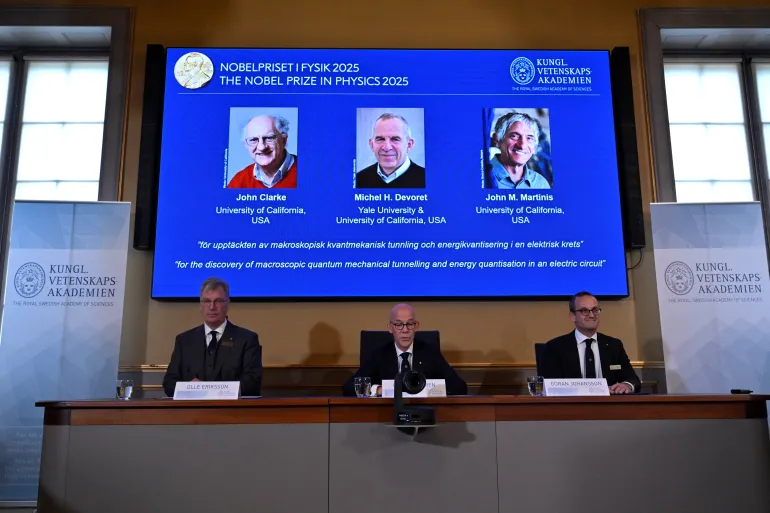STOCKHOLM, Sweden — The 2025 Nobel Prize in Physics has been awarded to John Clarke of the United Kingdom, Michel Devoret of France, and John Martinis of the United States for their pioneering work in quantum mechanics, which has revolutionized digital technology. Their discoveries have laid the foundation for advancements in quantum cryptography, quantum computers, and quantum sensors, transforming fields ranging from telecommunications to computing.
The Nobel Committee highlighted that their research demonstrated quantum tunneling on a macroscopic scale using superconductors, a breakthrough that has made quantum mechanics accessible and measurable in human terms. Ulf Danielsson, secretary of the Nobel physics committee, emphasized the significance of their experiments in the 1980s, which bridged the gap between theoretical physics and practical applications.
Quantum mechanics, which governs the behavior of particles at the smallest scales, underpins all modern digital technology. For instance, the functionality of mobile phones is directly linked to their discoveries. Clarke, a professor at the University of California, Berkeley, described the award as ‘the surprise of my life,’ noting that the practical implications of their work were not immediately apparent during their experiments.
The trio’s collaboration exemplifies the global nature of scientific research. However, their work also underscores the ‘brain drain’ phenomenon, as Devoret and Martinis conducted their research in the United States, a hub for scientific innovation due to its investment in basic science and academic freedom. Eleanor Crane, a quantum physicist at King’s College London, pointed out that recent U.S. budget cuts to science programs threaten to erode this leadership.
The physics prize follows the Nobel in Medicine, awarded to a US-Japanese trio for their work on the human immune system. The Nobel season continues with awards in chemistry, literature, peace, and economics, culminating in the formal ceremonies on December 10, the anniversary of Alfred Nobel’s death. Each laureate receives a diploma, a gold medal, and a share of the $1.2-million prize.
